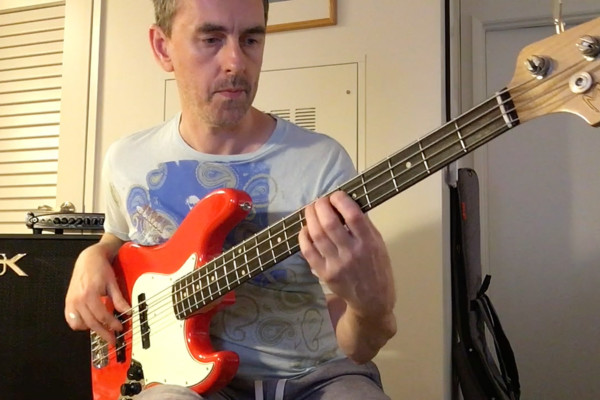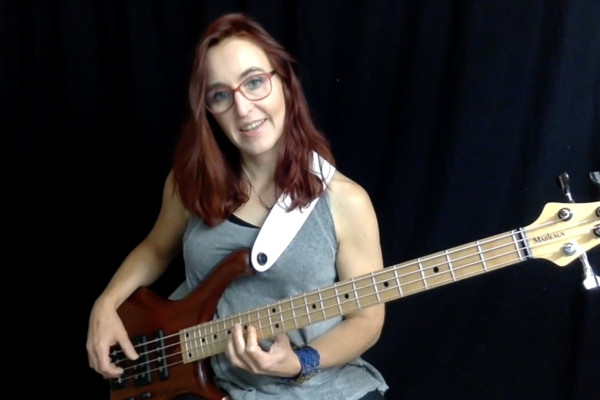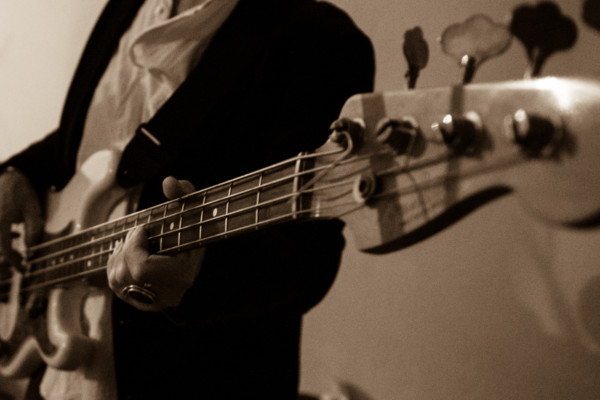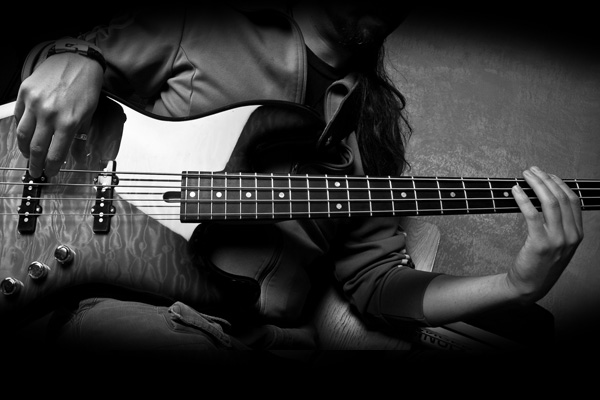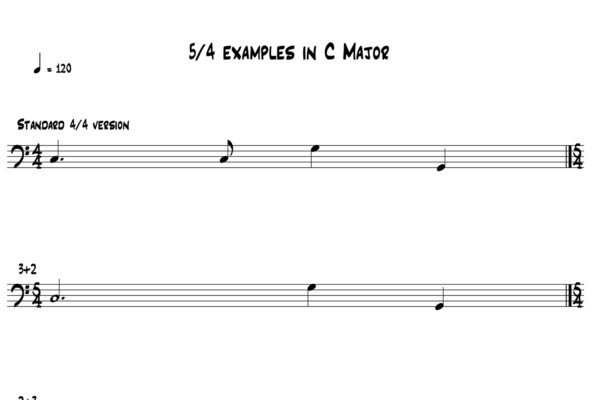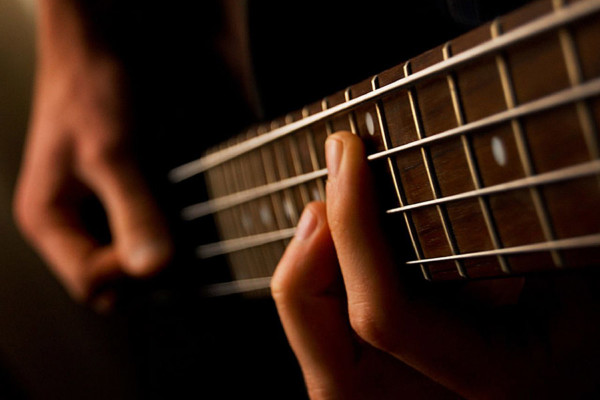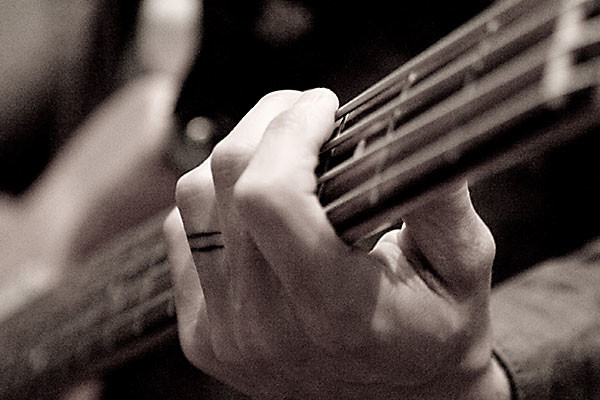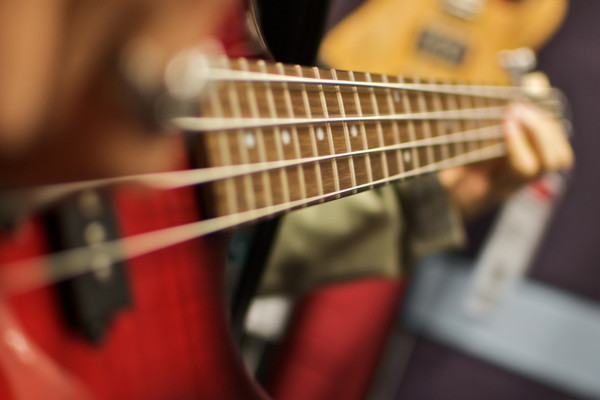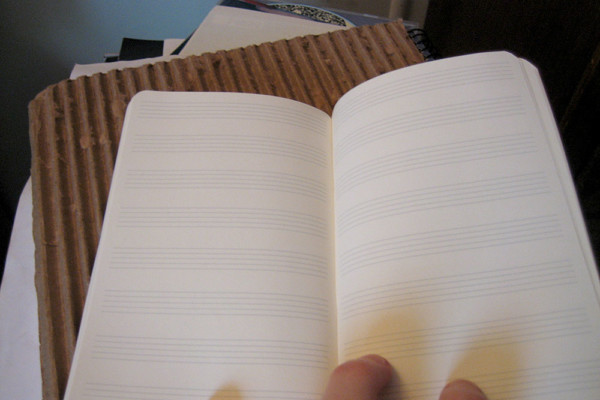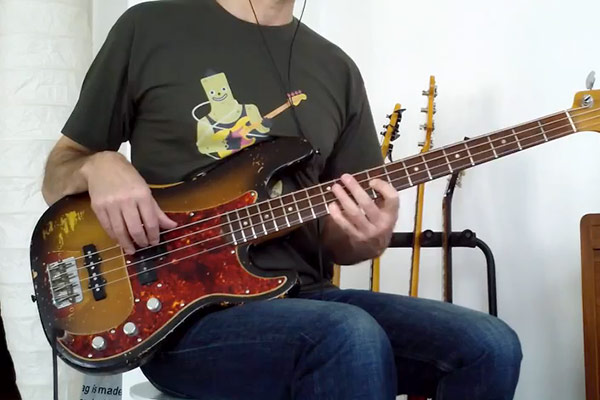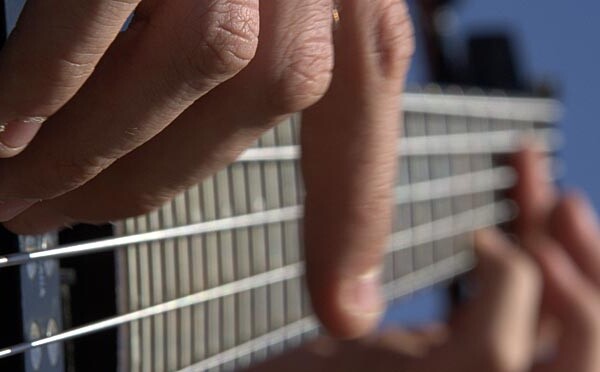Bass Line Construction Archives - Page 4
Creative Bass Lines: Melodic and Rhythmic Lines
For my first column here at No Treble, I thought it might be fun to demonstrate a few actual bass parts I have come up with for projects I have recorded. One of the things I enjoy in the playing of the bassists that have influenced me is the use of interesting melodic and rhythmic devices – more often than...
Talking Technique: Talking Double Stops
Looking for ways to spice up your grooves? Double stops are a great option. In their most basic form, double stops are when we play two notes together at the same time. They can sound muddy in some registers of the bass, but we’ll go over some tricks to make them sound like gold. This is another all-in-one lesson as...
Making Walking Bass Lines Come Naturally
Q: I would like to ask you about improvising bass lines. Could it be unconscious? I recognized that when I play walking bass, I’m always think about how to reach the next chord. I sometimes have great ideas that I hear in my mind’s ear, but most of the time it’s a really conscious procedure. It’s really interesting because during...
Getting Started: A Beginner’s Guide to Improvising a Bass Line
Whether you are a beginning bassist, or an accomplished musician who is simply accustomed to reading written music, it can be daunting when first asked to improvise a bass line. Some people stumble, others freeze. Some think they need to be well versed in college level theory. However, there is no reason to fear even if you know only a...
Writing Bass Lines in Odd Time Signatures
Q: I have been playing bass for a while now and have recently started a jazz-fusion project where we are creating original material. At our last rehearsal, I was handed a lead sheet for a song written in 5/4. The member then explained that the song wasn’t in two three or three two, but in four one. How do you...
Where to Use Whole Tone and Other Scales
Q: So, do you play whole tone scales over the ?5, and altered scales over the dominant chords. Major chords – do use use whole tone? Minor scales – do use use dorian? or a jazz minor? A: Much of what goes into deciding what scale to use over any given chord is all about the context (what chords are...
Creating Tasteful Bass Lines
Q: I’d like to know what your thoughts are on the subtle art of variation within bass lines; the where’s and whys, and indeed, the where nots and the why nots. I believe that this kind of understanding is one of the key factors separating good bass players from great ones. I know for myself, I seem to have two...
Quickly Figuring Out Available Notes For Given Chord Types
Q: I’ve been trying to learn how to figure out what notes are available for any given chord type. I’ve read columns here (yours are very helpful), Googled it, bought books… I just seem to get more confused at every turn. Once I think I’ve got it, I’ve lost it. Do you have any quick and dirty tricks for remembering...
Thinking In Modes or Scales and Constructing Bass Lines
Q: I’ve been trying to learn how to play over the changes, but I’m super confused about one particular aspect: I don’t know I should think of scales. For example when I’m playing over a G dominant chord, should I think G mixolydian or should I think fifth mode of the C major scale? In other words, should I treat...
Playing Bass without Sheet Music: Time, Feel & Harmony
Q: I’ve been playing bass for about 7 years. Before bass I was a very good tuba player and a halfway decent cellist. My problem is I never learned to play without music notation. I can’t even play tabs. I either need the notation or the chord progression. What’s the best way for me to get to a point where...
Lesson: Funky Bass Grooves and Fills with Open Strings
Here are some cool patterns for you to try out, using open strings for creating fast passages and note doubling. In the video demonstration, I first play it at full speed, followed by a reduced speed. Follow along with the notation/TAB (PDF). For the gear heads: I’m playing my 1966 Fender Precision bass (I don’t use the Jazz bass bridge...
Building Bass Lines: Navigating More Changes
Q: I have recently begun playing with a pop artist who writes what I would call “chord heavy” songs. These are not your typical I-IV-V tunes, and they definitely aren’t “riffy”; they are tunes with intricate verse and chorus progressions and extended bridges. I have been going off the lead sheets for now, but my question is how can I...
